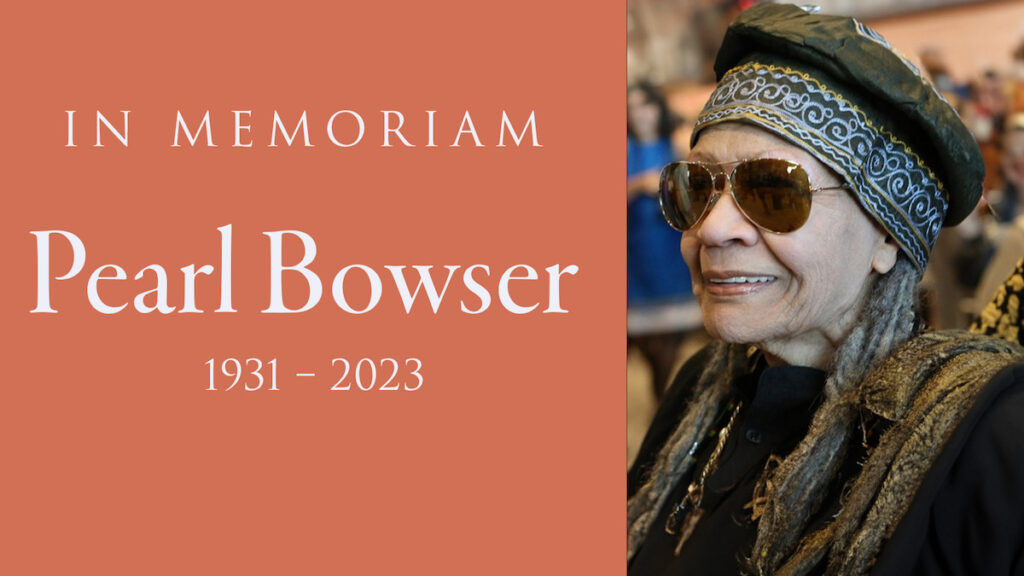Last week, the world lost one of its great cinema luminaries, Pearl Bowser, when she passed away at age 92. Her life-long passion for preserving, screening and educating the world about Black cinema brought a crucial spotlight to such trailblazing filmmakers as Oscar Micheaux. With Louise Spencer, she co-wrote the book, Writing Himself Into History: Oscar Micheaux, His Silent Films, and unearthed the director’s lost archives, thus bringing to light the origins of Black Cinema that could have easily been forgotten. Ms. Bowser was given the affectionate title of “Godmother of Black Independent Cinema” for her commitment to ensuring that the history of African-American filmmakers would not be lost to the ages.
She was born Pearl Johnson on June 25th, 1931, in Harlem, New York, where she became a devoted moviegoer throughout her youth. Though she faced racism regularly, she excelled academically and was awarded a scholarship to Brooklyn College. She joined an interracial club in the Bronx known as the Paul Robeson Club, and married fellow civil rights activist LeRoy Bowser in 1955. In 1970, Ms. Bowser joined Mel Roman and Charles Hobson in researching and curating the enormously influential “The Black Film” retrospective at the Jewish Museum. The following year, she began teaching seminars on African-American film at libraries, museums and universities.
Ms. Bowser organized both her own first film festival, the Black Film History Series, and the nation’s first American women’s film festival in New York City in 1979 alone. At the same time, she served as the director of the Theater Project at Third World Newsreel, the largest U.S. distributor of independent film by people of color, from 1978 to 1987. The 35th Flaherty Film Seminar, which she programmed with Grant Munro in 1989, features such landmark pictures as Julie Dash’s “Daughters of the Dust,” Cheick Oumar Sissoko’s “Finzan” and Ayoka Chenzira’s “Zajota and the Boogie Spirit.”
Apart from her extensive archival work, she blazed her own trail as a director, producer, distributor and scholar, challenging conventions and elevating underrepresented voices in cinema. Ms. Bowser made her directorial debut in 1994 with “Midnight Ramble,” an examination of “race films” during the Golden Age of Hollywood, after which she founded the Chamba Educational Film Services, a film company that specialized in distributing films by African American filmmakers. She also founded African Diaspora Images, a visual and oral history collection chronicling the history of African-American filmmaking.
She received the SCMS Distinguished Career Achievement Award in 2005 and donated her invaluable collection of books, audio cassettes, films, memorabilia and papers to the Smithsonian National Museum of African American History and Culture. Among the notable works in her collection include Julie Dash’s “Four Women,” John W. Fletcher’s “Hands of Image” and Stan Lathan’s “Statues Hardly Smile.” In recent years, tributes to her have been presented at Light Industry, Lincoln Center Film Society, National Gallery of Art, and Film Forum.












